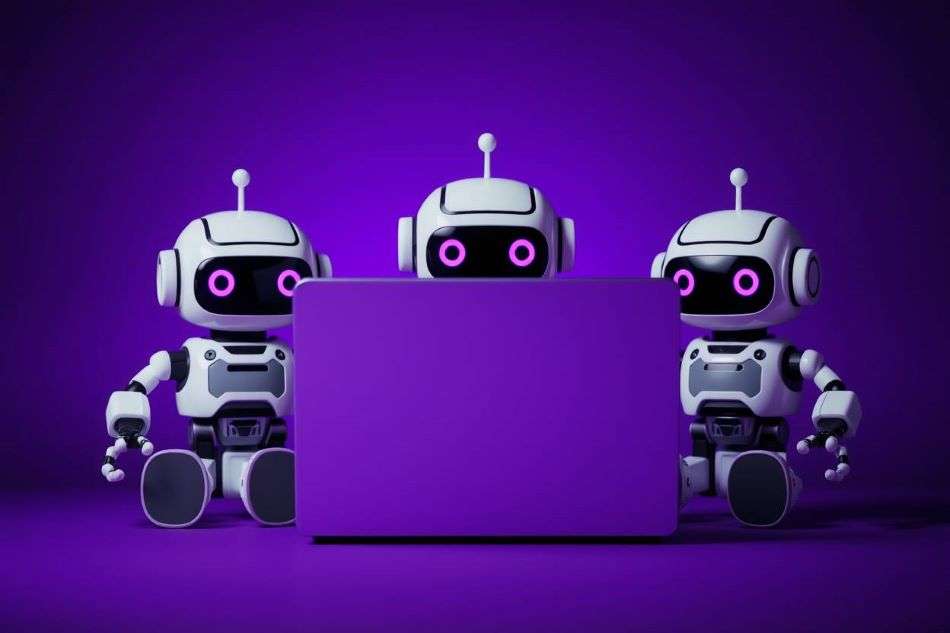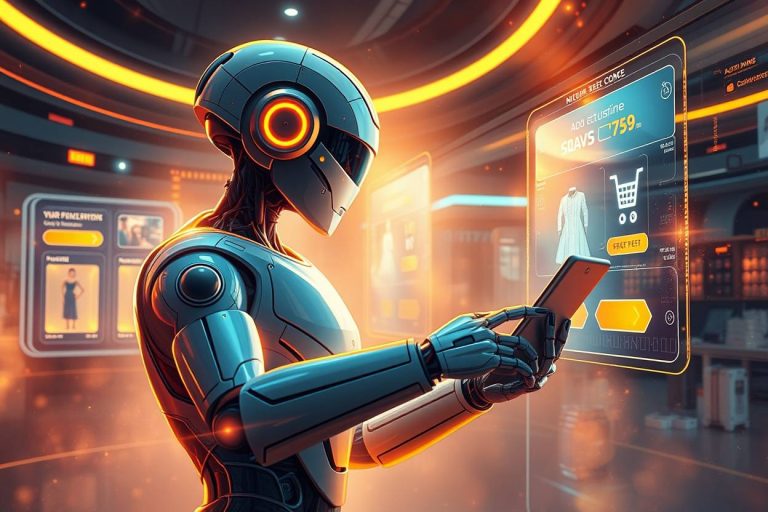How the job search process is transformed by AI and automation: 2025 trends and insights

The job search process has undergone a massive transformation in recent years, firmly driven by advancements in AI and automation.
As time passes faster in 2025, job seekers and employers are starting to witness a new era in which AI-powered platforms, machine learning (ML) algorithms, and robotic process automation (RPA) are redefining recruitment.
From resume screening to personalized job recommendations, AI and automation have made the job search much more efficient than it ever was.
In this article, we’ll learn more about how AI and automation transform the job search process in 2025.
Time and attendance tracking
AI-powered time and attendance tracking is revolutionizing workforce management by automating timekeeping, improving accuracy, and reducing fraud. Here’s how AI is making an impact:
- Automated clock-in and clock-out: AI-powered facial recognition or biometric systems make sure that employees clock in and out accurately.
- Real-time monitoring & insights: AI tracks work hours, breaks, and overtime in real time, providing managers with instant updates on workforce attendance. Predictive analytics help forecast scheduling needs based on historical attendance trends.
- Integration with payroll & HR systems: AI reduces payroll errors by automating calculations based on actual working hours, seamless integration with HR software ensures compliance with labor laws and overtime policies.
AI-driven insights help managers understand employee behavior, identify any mismatches in schedule registration, and optimize work schedules. Employees benefit from self-service portals where they can check working hours, request time off, and receive real-time feedback on attendance.
Automated talent discovery
New AI recruiting solutions are transforming how you find talent. Before, recruiters manually reviewed many resumes to find out who was the right fit for the job. However, AI-driven tools are now scanning platforms and databases in only a few seconds.
AI tools can analyze large chunks of data to identify which candidates match hiring needs. Whether you’re someone who is looking for specific skills or a larger range of experience, AI makes the process much faster and precise.
The more interesting part about this is that you can find passive candidates. Passive candidates are those who aren’t even looking for a job, but fit all the requirements recruiters have. This gives passive candidates a chance to receive opportunities while they are looking for others.
Resume rewriter
An AI resume rewriter transforms job searches by making the process faster, more efficient, and tailored to bypass the applicant tracking system (ATS). Many companies use ATS software to scan resumes for keywords before they even reach a human recruiter.
AI tools can generate multiple versions of a resume tailored to different job applications. Instead of manually tweaking resumes for each job, AI can highlight specific skills and experiences that align with each role.
Personalized career coaching
AI-driven personalized career coaching is transforming how professionals navigate their careers by offering tailored advice, skill assessments, and job-matching solutions. Here’s how AI-powered coaching is making a significant impact:
- AI-powered career assessments: AI analyzes skills, experiences, and personality traits to suggest the best career paths they need to follow. Moreover, it uses machine learning (ML) to compare individual profiles with industry trends and demand.
- Resume & cover letter optimization: AI refines resumes by adding industry-specific keywords to pass Applicant Tracking Systems (ATS) and offers dynamic suggestions to improve clarity, impact, and readability.
- AI-driven job matching: Uses smart algorithms to recommend jobs that align with a user’s background, interests, and goals. Some platforms can provide you with real-time alerts for job openings that match a candidate’s profile.
- Interview coaching with AI: AI-driven tools will analyze speech patterns, tone, and body language in interviews and provide instant feedback on responses, helping candidates improve communication skills.
- Continuous skill development: AI identifies skill gaps and suggests online courses, certifications, or training programs. Personalized learning paths keep professionals competitive in their field.
In short, AI-powered platforms create structured career roadmaps with clear milestones. There are even some tools that connect users with mentors or industry professionals for guidance.
Networking and social recruiting
AI is transforming how professionals network and how companies recruit talent, improving both efficiency and effectiveness in connecting job seekers with opportunities.
AI platforms can analyze social media profiles, online portfolios, and professional networks like you see on LinkedIn to identify top talent. By scanning resumes, social media, and job market trends, AI finds candidates who match specific roles more efficiently than traditional methods ever did.
Moreover, AI analyzes candidates’ social media activity (e.g., posts, comments, shared content) to assess cultural fit and interest. Automated systems identify potential candidates who are actively engaged with industry-related content.
Overall, AI tools help job seekers and professionals build personalized networking strategies, suggesting relevant people or groups to connect with based on shared interests, goals, and industry. It recommends events, webinars, and conferences that align with a user’s career path or business interest, building stronger connections.
Virtual-Reality (VR) job simulation

VR job simulations are transforming the way companies assess and train employees. By offering immersive, real-world experiences in a virtual setting, VR job simulations provide powerful tools for recruitment, onboarding, and skill development.
VR job simulations allow candidates to experience a realistic preview of the job they’re applying for, helping them understand the environment and tasks they’ll be working in. This approach not only improves the hiring process, but also gives candidates a sense of the role but also reduces early turnover.
In fact, 29% of employees quit their job within the first 90 days of joining a company.
Furthermore, VR simulations enable more objective candidate assessments based on actual performance rather than just interview responses or resumes. VR offers the ability to train employees in realistic, high-risk scenarios without real-world consequences. This is especially useful for industries like healthcare, manufacturing, and emergency services.
Let’s not forget that advanced VR platforms collect detailed performance data during simulations, allowing trainers to assess all skill gaps and provide targeted feedback.
Predictive analytics for emerging skill gaps
Predictive analytics is revolutionizing workforce planning by identifying emerging skills gaps before they become a serious issue. Using AI-driven insights, organizations can forecast talent needs, reskill employees, and future-proof their workforce.
It analyzes job market trends, industry reports, and internal workforce data to predict which skills will be in demand. Machine learning (ML) models assess employee performance, their training history, and where they are progressing with their careers to see if there are any skill deficiencies before they affect their productivity.
Moreover, AI aggregates job postings and company hiring trends to highlight which skills are increasing in demand. HR tech platforms will use predictive analytics to match current workforce capabilities with future job roles.
Predictive analytics helps recruiters find out which roles will become important in the future, and this is helpful for many companies since they’re already one step ahead of their competitors.
Furthermore, the good side is that AI models can also predict which job functions might become “extinct” and help organizations transition employees to new roles instead of having to lay them off.
For instance, tech companies are experiencing the most cutbacks, and in 2024, there have been more than 150,000 layoffs. However, AI models are now trying to help in reducing this impact.
AI-powered job application chatbots

AI-powered job application chatbots are transforming recruitment by automating the hiring process, improving candidate engagement, and reducing the workload for HR teams.
Chatbots can provide 24/7 responses to job seekers, answering FAQs about job roles, company culture, and application status. They create a great experience by guiding applicants through the process in real-time.
Moreover, AI chatbots assess candidate qualifications by asking relevant questions and matching responses based on the job criteria. They filter unqualified applicants, making sure the best-fit candidates are reaching recruiters.
AI will suggest job openings based on the candidate’s skills, experiences, and interests. This improves the applicant experience by aligning them with relevant roles. Moreover, AI promotes unbiased screening by focusing on skills and qualifications rather than demographics. Some chatbots anonymize candidate data to prevent unconscious bias.
AI and automation are reshaping the job search process
As we move through 2025, AI and automation are reshaping the job search process, making it faster, smarter, and more efficient. From AI-driven resume screening, VR job simulations, predictive analytics, and much more, technology is empowering job seekers and recruiters like never before.
AI will continue to evolve, and human oversight remains essential to promote fairness, transparency, and ethical decision-making in hiring. Job seekers need to adapt by continuously upskilling to stay competitive in an AI-driven market. Automation is making the process more data-driven, and easier for people to find the right job fit.




